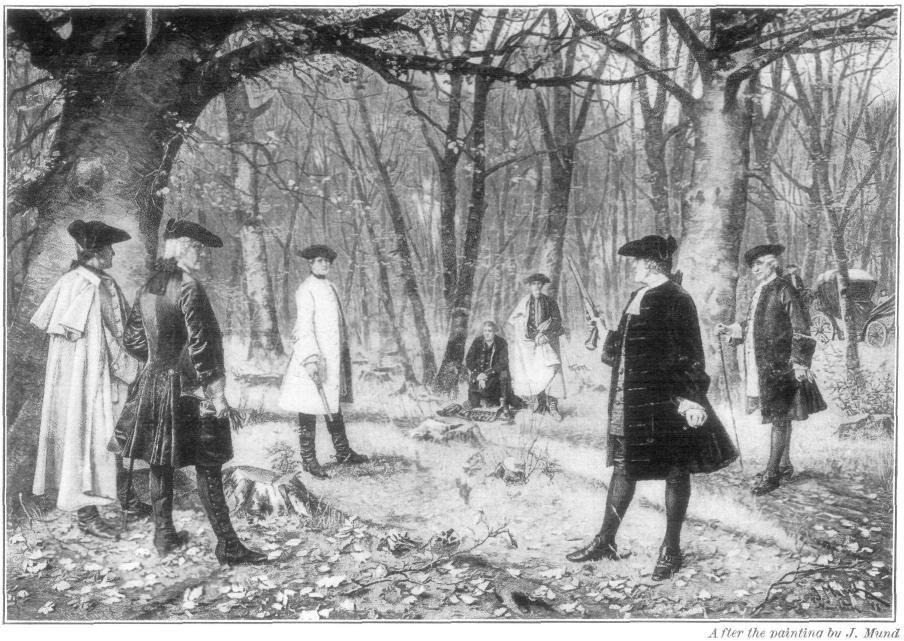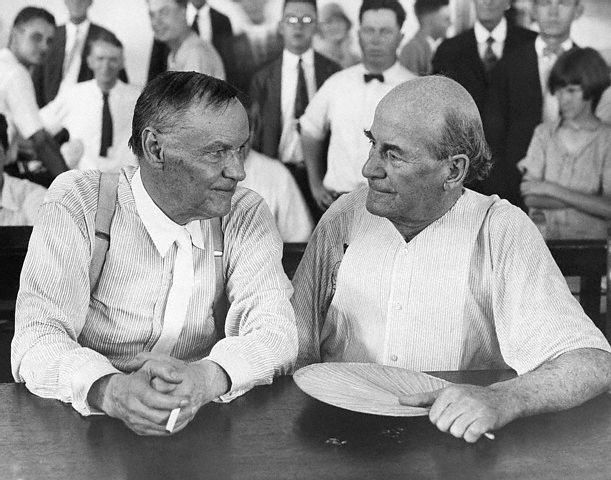Author's posts
Jul 12 2010
Haiti: 6 Months Later: Up Dated
Six months after the earthquake that devastated Haiti on 12th January 2010, this report describes the evolution of MSF’s work during what is the organisation’s largest ever rapid emergency response. It attempts to explain the scope of the medical and material aid provided to Haiti by MSF since the catastrophe, but also to set out the considerable challenges and dilemmas faced by the organisation. It acknowledges that whilst the overall relief effort has kept many people alive, it is still not easing some of their greatest suffering.
snip
The earthquake destroyed 60 per cent of the existing health facilities and 10 per cent of medical staff were either killed or left the country. MSF had to relocate services to other facilities, build container hospitals, work under temporary shelters, and even set up an inflatable hospital. With over 3000 Haitian and international staff working in the country, MSF currently manages 19 health facilities and has over 1000 beds available at various locations. The organisation has provided emergency medical care to more than 173,000 patients between January 12th and May 31st.
snip
Six months on, the medical provision for the majority of citizens has been significantly improved in general and some poor people who were unable to access healthcare prior to the disaster are now able to recieve care.
Jul 11 2010
Punting the Pundits: Sunday Edition
It’s the Sunday morning round up of the usual and unusual. Sports seems to be the popular topic. So pour that cup of whatever you drink when you read and add your opinion to theirs.
In the realm of stranger things, Carlos Ruiz Zafon looks at sports and a psychic octopus and how it has reshaped a country.
HIS name is Paul, he has eight legs and he flaunts a flexibility that would put to shame the ethics code of any self-respecting investment bank on Wall Street. What’s more, he’s one of the stars of the World Cup blazing on zillions of TV screens around the world. Yet Paul has never set foot on a soccer field, never kicked a ball and to this day most of his running has been devoted to chasing lobsters. Paul, you see, is an octopus.
OctoPaul is, at present, an inmate at the Oberhausen aquarium in Germany, where he has entered the V.I.P. lounge of animal oracle lore due to the uncanny precision in his predictions on the outcome of crucial sports events. He works his magic according to a strict procedure: his caretakers introduce into his tank two boxes containing the flags of the opposing teams (and a mussel in each for him to snack on, post-decision). Then, while the world news media eagerly waits, OctoPaul, cucumber-cool and donning his trademark deep-thinking face, settles on one of them.
snip
What the future will bring, maybe only Paul the Octopus knows. And by the way, Paul predicted Spain will win the final.
Eugene Robinson wonders why everyone is upset with Lebron James
Why is everybody hating on LeBron James? I mean, is this a free country? Or did a couple of important amendments to the Constitution get repealed while nobody was looking?
I understand, of course, why the good people of Cleveland would be disappointed, distraught, even irate. King James is, at the very least, the second-best basketball player in the world. For a city that has seen so many ups and downs — and let’s be honest, the general trend for the past half-century has been down — the departure of a hometown superstar must be a cruel blow. But let’s try to keep things in perspective.
Jul 11 2010
On This Day in History: July 11
Aaron Burr slays Alexander Hamilton in a Duel
 On this day in 1804, Aaron Burr, Vice President of the United States slays Alexander Hamilton, former Secretary of the Treasury, in a duel in Weehauken, NJ. There are accounts that Hamilton, who had been involved in several other duels that had been settled without shots, decided at the last minute that the duel was immoral and fired his weapon in the air. Burr, whose seconds said that Hamilton did indeed fire at Burr and missed, shot Hamilton in the abdomen. The bullet lodged near Hamilton’s spine, and he was taken back to New York City where he died the next day.
On this day in 1804, Aaron Burr, Vice President of the United States slays Alexander Hamilton, former Secretary of the Treasury, in a duel in Weehauken, NJ. There are accounts that Hamilton, who had been involved in several other duels that had been settled without shots, decided at the last minute that the duel was immoral and fired his weapon in the air. Burr, whose seconds said that Hamilton did indeed fire at Burr and missed, shot Hamilton in the abdomen. The bullet lodged near Hamilton’s spine, and he was taken back to New York City where he died the next day.
The irony is that this was the same place that Hamilton’s son, Philip, had died two and a half years prior defending his father’s honor.
Few affairs of honor actually resulted in deaths, and the nation was outraged by the killing of a man as eminent as Alexander Hamilton. Charged with murder in New York and New Jersey, Burr, still vice president, returned to Washington, D.C., where he finished his term immune from prosecution.
In 1805, Burr, thoroughly discredited, concocted a plot with James Wilkinson, commander-in-chief of the U.S. Army, to seize the Louisiana Territory and establish an independent empire, which Burr, presumably, would lead. He contacted the British government and unsuccessfully pleaded for assistance in the scheme. Later, when border trouble with Spanish Mexico heated up, Burr and Wilkinson conspired to seize territory in Spanish America for the same purpose.
In the fall of 1806, Burr led a group of well-armed colonists toward New Orleans, prompting an immediate U.S. investigation. General Wilkinson, in an effort to save himself, turned against Burr and sent dispatches to Washington accusing Burr of treason. In February 1807, Burr was arrested in Louisiana for treason and sent to Virginia to be tried in a U.S. court. In September, he was acquitted on a technicality. Nevertheless, public opinion condemned him as a traitor, and he fled to Europe. He later returned to private life in New York, the murder charges against him forgotten. He died in 1836.
Jul 10 2010
Health and Fitness News
 Welcome to the Stars Hollow Health and Fitness weekly diary. It will publish on Saturday afternoon and be open for discussion about health related issues including diet, exercise, health and health care issues, as well as, tips on what you can do when there is a medical emergency. Questions are encouraged and I will answer to the best of my ability. If I can’t, I will try to steer you in the right direction. Naturally, I cannot give individual medical advice for personal health issues. I can give you information about medical conditions and the current treatments available.
Welcome to the Stars Hollow Health and Fitness weekly diary. It will publish on Saturday afternoon and be open for discussion about health related issues including diet, exercise, health and health care issues, as well as, tips on what you can do when there is a medical emergency. Questions are encouraged and I will answer to the best of my ability. If I can’t, I will try to steer you in the right direction. Naturally, I cannot give individual medical advice for personal health issues. I can give you information about medical conditions and the current treatments available.

Beets you say? Ugh! Well, they are nutritious and when prepared well in hot and cold dishes quite tasty. They come in a number of varieties besides red, such as chioggas (pictured above: white striated), pink and golden. When buying fresh beets, buy them with the greens still attached. The greens are an excellent source of beta-carotene, calcium, iron and vitamin C. The beets themselves are rich in folate, magnesium and potassium. So if you eat well, you won’t need those vitamin supplements.
Jul 10 2010
Punting the Pundits: Saturday Round Up
Round ’em up. Pour your favorite beverage and put your feet up.
Paul Krugman asks us to Pity the Poor C.E.O.’s
Job creation has been disappointing, but first-quarter corporate profits were up 44 percent from a year earlier. Consumers are nervous, but the Dow, which was below 8,000 on the day President Obama was inaugurated, is now over 10,000. In a rational universe, American business would be very happy with Mr. Obama.
Who ever said American business was rational?
David Sirota wonders if Are low taxes exacerbating the recession?
As the planet’s economy keeps stumbling, the phrase “worst recession since the Great Depression” has become the new “global war on terror” – a term whose overuse has rendered it both meaningless and acronym-worthy. And just like that previously ubiquitous phrase, references to the WRSTGD are almost always followed by flimsy and contradictory explanations.
Republicans, who ran up enormous deficits, say the recession comes from overspending. Democrats, who gutted the job market with free trade policies, nonetheless insist it’s all George W. Bush’s fault. Meanwhile, pundits who cheered both sides now offer non-sequiturs, blaming excessive partisanship for our problems.
Read more: http://www.sfgate.com/cgi-bin/…
Jul 10 2010
On This Day in History: July 10
Monkey Trial Begins

In Dayton, Tennessee, the so-called “Monkey Trial” begins with John Thomas Scopes, a young high school science teacher, accused of teaching evolution in violation of a Tennessee state law.
The law, which had been passed in March, made it a misdemeanor punishable by fine to “teach any theory that denies the story of the Divine Creation of man as taught in the Bible, and to teach instead that man has descended from a lower order of animals.” With local businessman George Rappalyea, Scopes had conspired to get charged with this violation, and after his arrest the pair enlisted the aid of the American Civil Liberties Union (ACLU) to organize a defense. Hearing of this coordinated attack on Christian fundamentalism, William Jennings Bryan, the three-time Democratic presidential candidate and a fundamentalist hero, volunteered to assist the prosecution. Soon after, the great attorney Clarence Darrow agreed to join the ACLU in the defense, and the stage was set for one of the most famous trials in U.S. history.
On July 10, the Monkey Trial got underway, and within a few days hordes of spectators and reporters had descended on Dayton as preachers set up revival tents along the city’s main street to keep the faithful stirred up. Inside the Rhea County Courthouse, the defense suffered early setbacks when Judge John Raulston ruled against their attempt to prove the law unconstitutional and then refused to end his practice of opening each day’s proceeding with prayer.
snip
In front of several thousand spectators in the open air, Darrow changed his tactics and as his sole witness called Bryan in an attempt to discredit his literal interpretation of the Bible. In a searching examination, Bryan was subjected to severe ridicule and forced to make ignorant and contradictory statements to the amusement of the crowd. On July 21, in his closing speech, Darrow asked the jury to return a verdict of guilty in order that the case might be appealed. Under Tennessee law, Bryan was thereby denied the opportunity to deliver the closing speech he had been preparing for weeks. After eight minutes of deliberation, the jury returned with a guilty verdict, and Raulston ordered Scopes to pay a fine of $100, the minimum the law allowed. Although Bryan had won the case, he had been publicly humiliated and his fundamentalist beliefs had been disgraced. Five days later, on July 26, he lay down for a Sunday afternoon nap and never woke up.
Jul 09 2010
Punting the Pundits
Pour a cup of coffee or brew some tea and contemplate the day.
Glen Greenwald again starts at the top with his continued skewering of the MSM hypocrisy, asking us to consider who has been forced out of the so-called “Liberal Media”
Octavia Nasr’s firing and what The Liberal Media allows
CNN yesterday ended the 20-year career of Octavia Nasr, its Atlanta-based Senior Middle East News Editor, because of a now-deleted tweet she wrote on Sunday upon learning of the death of one of the Shiite world’s most beloved religious figures: “Sad to hear of the passing of Sayyed Mohammed Hussein Fadlallah . . . . One of Hezbollah’s giants I respect a lot.” That message spawned an intense fit of protest from Far Right outlets, Thought Crime enforcers, and other neocon precincts, and CNN quickly (and characteristically) capitulated to that pressure by firing her. The network — which has employed a former AIPAC official, Wolf Blitzer, as its primary news anchor for the last 15 years — justified its actions by claiming that Nasr’s “credibility” had been “compromised.” Within this episode lies several important lessons about media “objectivity” and how the scope of permissible views is enforced.
In an up date to his column, Glen addresses some of his harshest critics on his views on Israel. Glen concludes
I view the increasingly unhinged attacks by the worst neocon elements to be a vindication of what I’m doing. I see them as pernicious and destructive, and genuinely welcome their contempt.
That applies to just about any of the unreasonable, unhinged responses from the “neocon elements”.
Jul 09 2010
On This Day in History: July 9

On July 9, 1877, the All England Croquet and Lawn Tennis Club begins its first lawn tennis tournament at Wimbledon, then an outer-suburb of London. Twenty-one amateurs showed up to compete in the Gentlemen’s Singles tournament, the only event at the first Wimbledon. The winner was to take home a 25-guinea trophy.
Tennis has its origins in a 13th-century French handball game called jeu de paume, or “game of the palm,” from which developed an indoor racket-and-ball game called real, or “royal,” tennis. Real tennis grew into lawn tennis, which was played outside on grass and enjoyed a surge of popularity in the late 19th century.
In 1868, the All England Club was established on four acres of meadowland outside London. The club was originally founded to promote croquet, another lawn sport, but the growing popularity of tennis led it to incorporate tennis lawns into its facilities. In 1877, the All England Club published an announcement in the weekly sporting magazine The Field that read: “The All England Croquet and Lawn Tennis Club, Wimbledon, propose [sic] to hold a lawn tennis meeting open to all amateurs, on Monday, July 9, and following days. Entrance fee pounds 1 1s 0d.”
The All English Club purchased a 25-guinea trophy and drew up formal rules for tennis. It decided on a rectangular court 78 feet long by 27 feet wide; adapted the real tennis method of scoring based on a clock face–i.e., 15, 30, 40, game; established that the first to win six games wins a set; and allowed the server one fault. These decisions, largely the work of club member Dr. Henry Jones, remain part of the modern rules.
Jul 08 2010
Punting the Pundits: Not Your Usual Suspects
Pour a cup of coffee or brew some tea and try not to get too depressed
Glen Greenwald continues holding journalists feet to the fire on transparency
Journalists like to claim that they are devoted to transparency, but it’s striking how so many of them exempt themselves and their own media outlets from those “principles.” Here are five recent, somewhat similar episodes illustrating that syndrome:
Joe Conason tells us to listen to Niall Ferguson on the Federal deficit and then ignore his bad advice
Before the inquiring minds at the Aspen Ideas Festival go totally gaga over Niall Ferguson, perhaps they ought to know a little more about the British historian’s keen desire to punish our pampered working families, and how he would prefer to see us spend our dollars.
As a celebrity intellectual, Ferguson much prefers the broad, bold stroke to the careful detail, so it is scarcely surprising that he endorsed Wisconsin Republican Paul Ryan’s “wonderful” budget template, confident that his audience in Aspen would know almost nothing about that document. For Ferguson, the most beguiling quality of Ryan’s budget must be its bias against the working and middle classes and in favor of the wealthy. But as the Center for Budget and Policy Priorities revealed in a scorching review, the plan doesn’t work even on its own terms.
Jul 08 2010
On This Day in History: July 8
Let Freedom Ring. Your morning open thread

On this day in 1776, a 2,000-pound copper-and-tin bell now known as the “Liberty Bell” rings out from the tower of the Pennsylvania State House (now Independence Hall) in Philadelphia, summoning citizens to the first public reading of the Declaration of Independence. Four days earlier, the historic document had been adopted by delegates to the Continental Congress, but the bell did not ring to announce the issuing of the document until the Declaration of Independence returned from the printer on July 8.
In 1751, to commemorate the 50-year anniversary of Pennsylvania’s original constitution, the Pennsylvania Provincial Assembly ordered the bell to be constructed. After being cracked during a test, and then recast twice, the bell was hung from the State House steeple in June 1753. Rung to call the Pennsylvania Assembly together and to summon people for special announcements and events, it was also rung on important occasions, such as King George III’s 1761 ascension to the British throne and, in 1765, to call the people together to discuss Parliament’s controversial Stamp Act. With the outbreak of the American Revolution in April 1775, the bell was rung to announce the battles of Lexington and Concord. Its most famous tolling, however, was on July 8, 1776, when it summoned Philadelphia citizens for the first reading of the Declaration of Independence.

Recent Comments